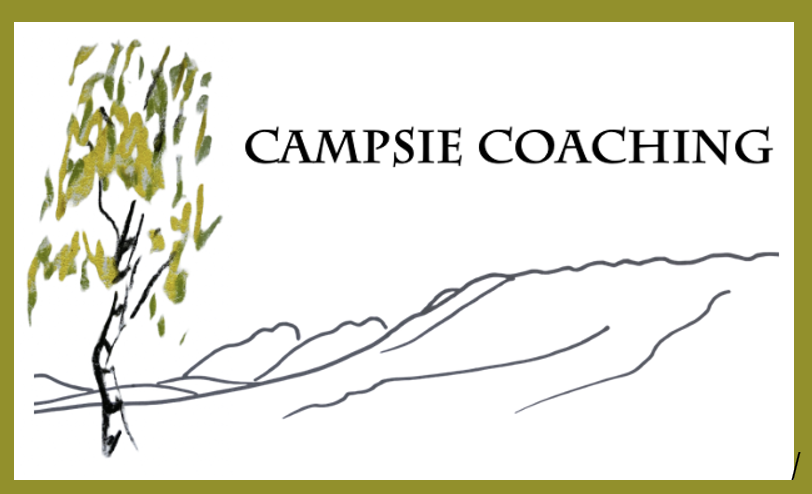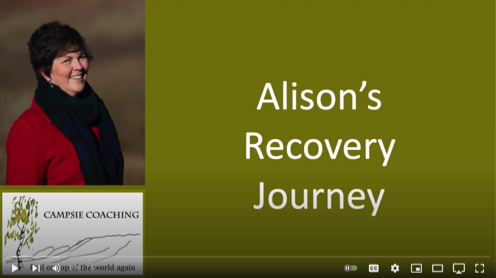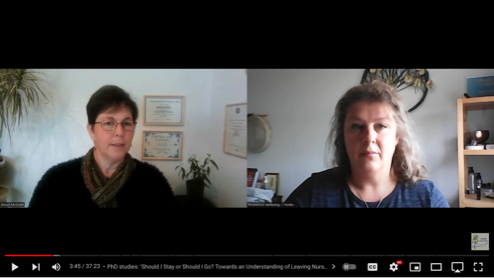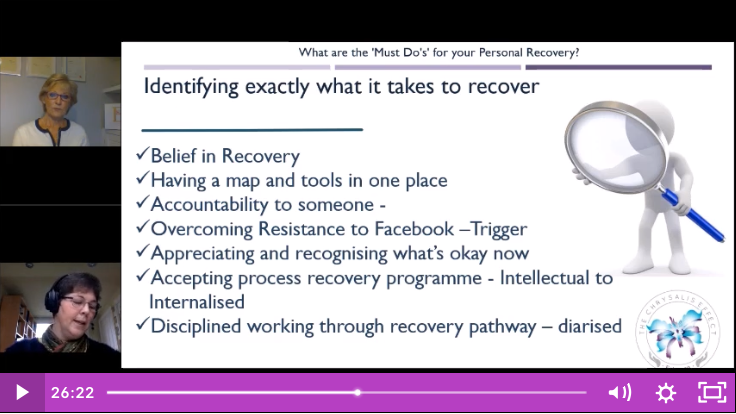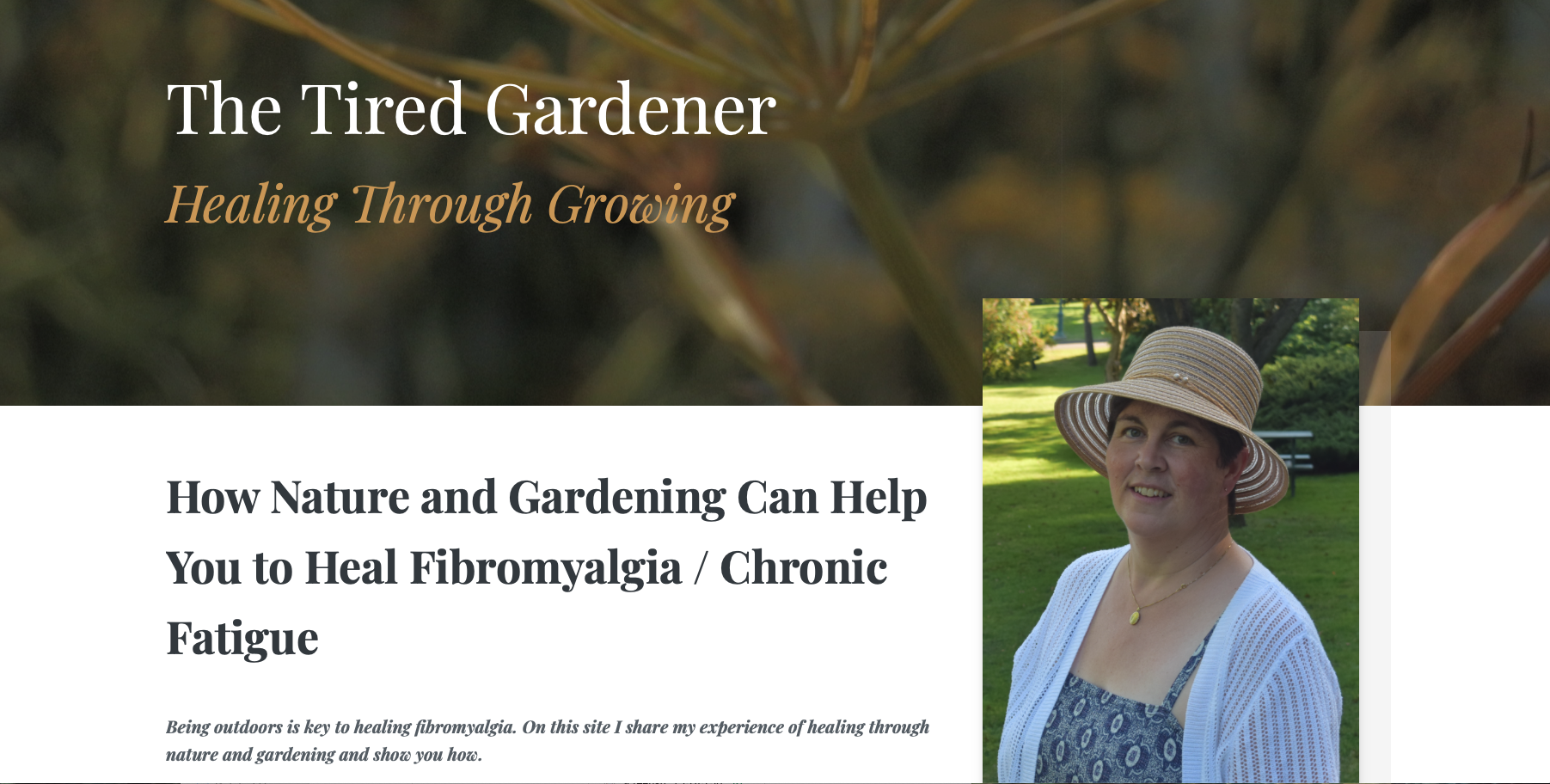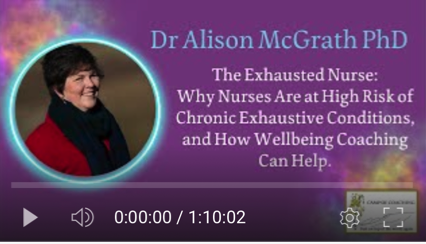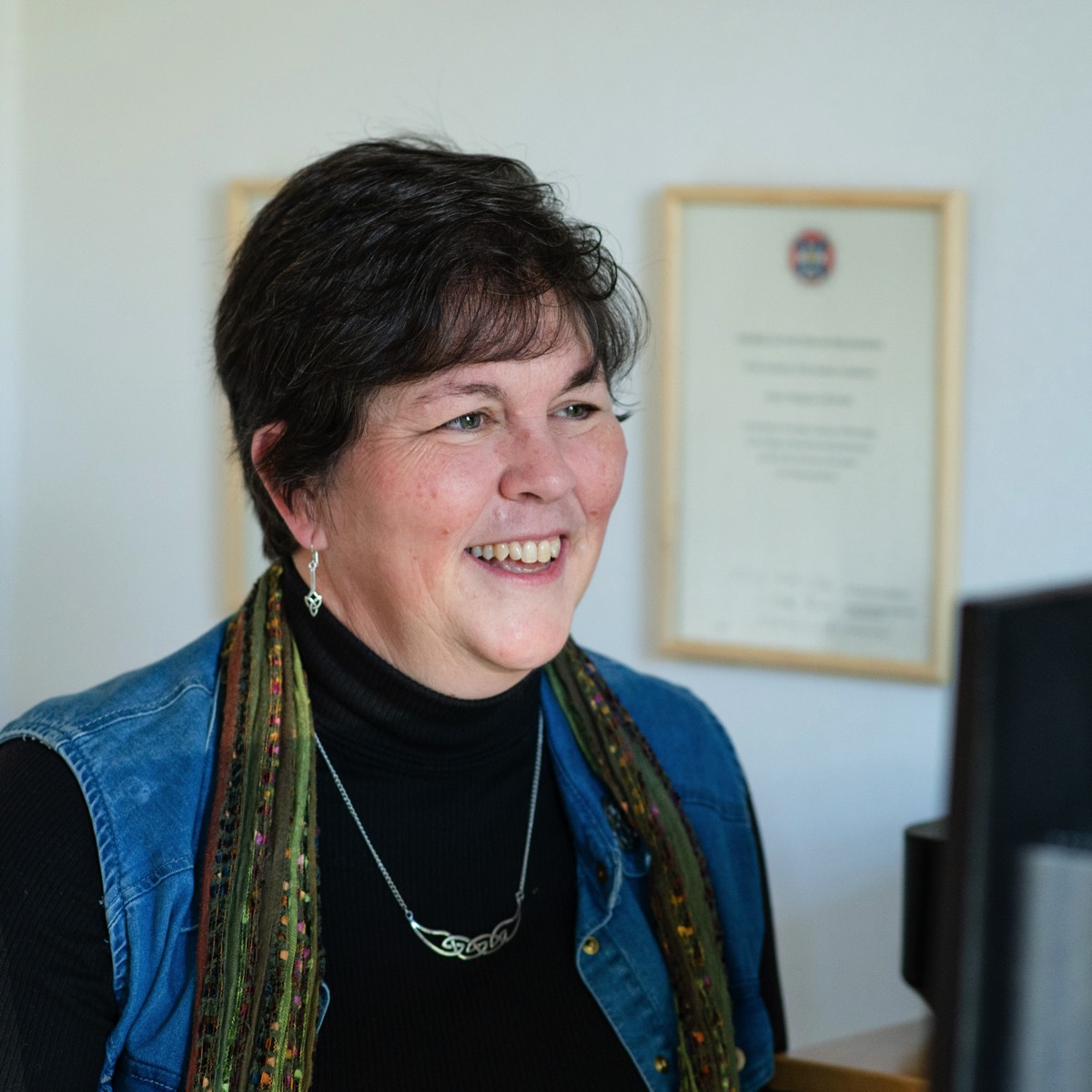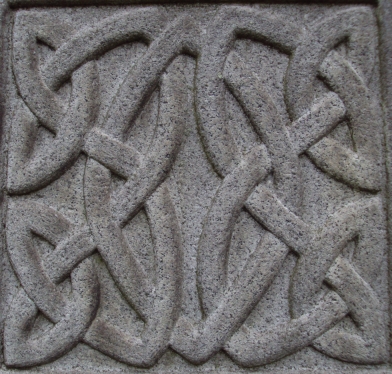Who am I?
As a coach, my focus will always be on you in our sessions, but when choosing who to work with it is helpful to have a sense of the background, knowledge and interests of the person you are thinking of working with.
Alison's Recovery Story Videos
Click on the links below to jump to the areas that interest you.
Why the focus on hills?
I have always loved being outdoors, and am a passionate gardener and nature lover who loves walking, especially in the hills. My greatest ambition when I was ill was to get back up into the hills of Scotland, which I left so unwillingly in 2002. This seemed like an impossible dream, especially during times when I was bed-bound, or building my stamina by walking to the end of the garden and back!
Through The Chrysalis Effect online recovery programme, and with a great deal of love and support from fellow recoverers, family and friends, I have fulfilled my 20 year dream to return to Scotland, where I am now developing a new garden at the foot of the Campsie Fells.
The first time I climbed to a cairn, and looked down across the central belt, from Glasgow to the Forth Rail Bridge, was an exhilarating and emotional moment, especially for someone who had been told repeatedly to adjust to their exhaustion and pain.
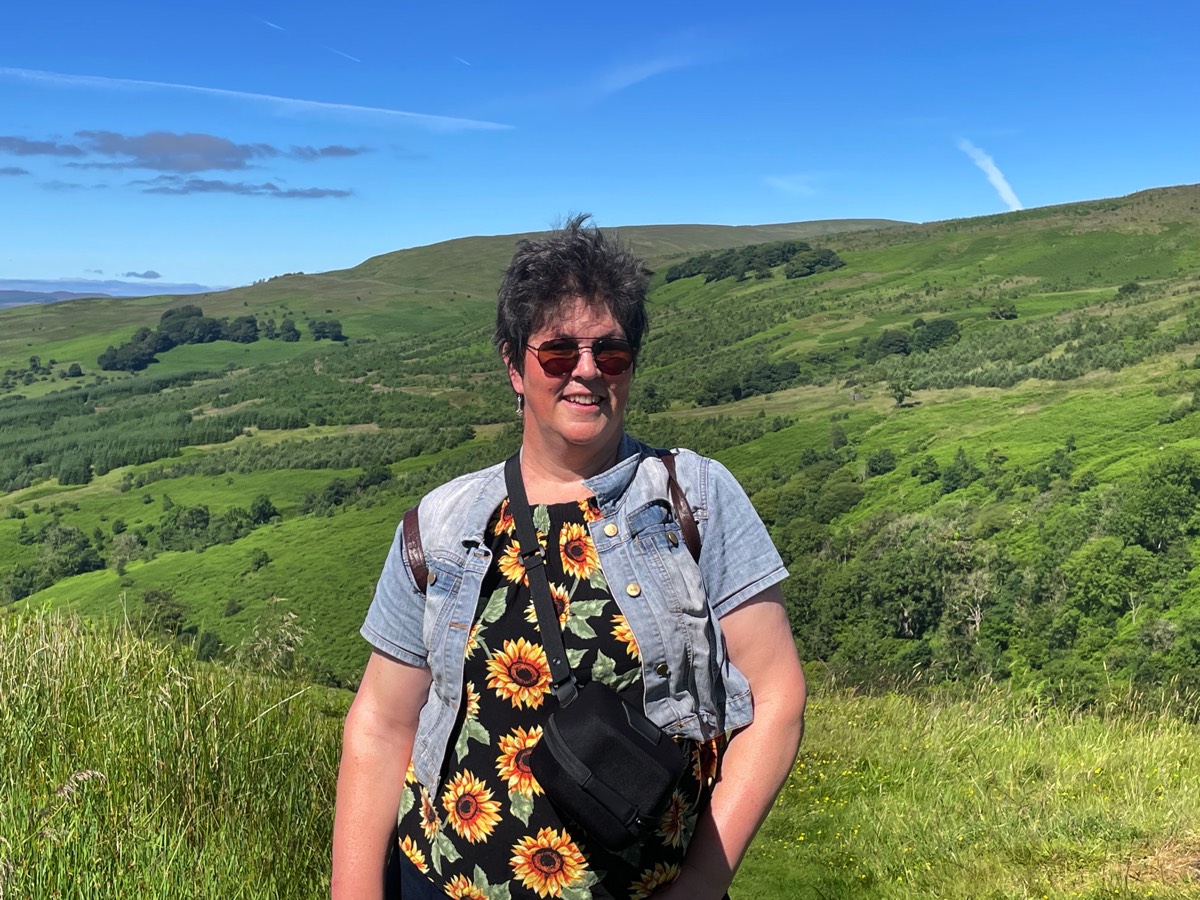
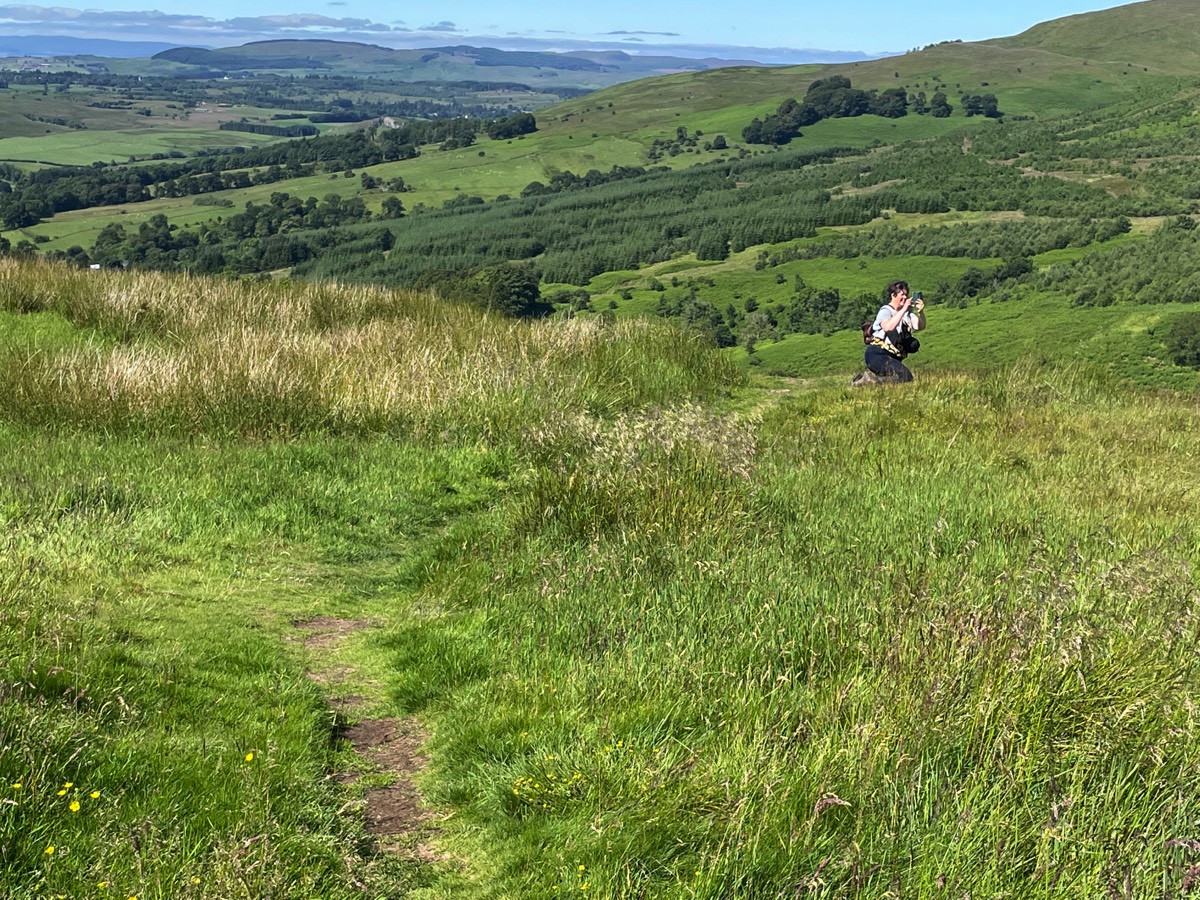

Having reached that seemingly impossible summit of full recovery, it is an even greater joy now to be able to share what I have learned, and to offer my experience to support other people like you, who are treading that same difficult path.
For me, the parallels between a walk in the hills and the ups and downs of recovery provide a powerful and healing metaphor, one that I hope will help and inspire you too.
For me, the parallels between a walk in the hills and the ups and downs of recovery provide a powerful and healing metaphor, one that I hope will help and inspire you too.
If you have a subscription with The Chrysalis Effect, you will be able to access my recovery story in the webinar library here.
There are two parts to this webinar, in which I was interviewed about my recovery journey and what I learned through it, by Chrysalis Effect founder, Elaine Wilkins.
There are two parts to this webinar, in which I was interviewed about my recovery journey and what I learned through it, by Chrysalis Effect founder, Elaine Wilkins.
My qualifications
After reaching full recovery, I was given a bursary to train with The Chrysalis Effect's ILM accredited course as a trauma informed wellbeing coach. I went on to train as a specialist recovery practitioner with the programme.
This training brought together a lifetime of qualifications and experiences, including qualifying as a nurse and a nurse researcher, which I had previously thought were signs of a series of 'failed' careers. I now see them as steps towards my current work as a recovery specialist. Each step has given me skills, knowledge and insights through a wide range of life experiences that I offer my clients.
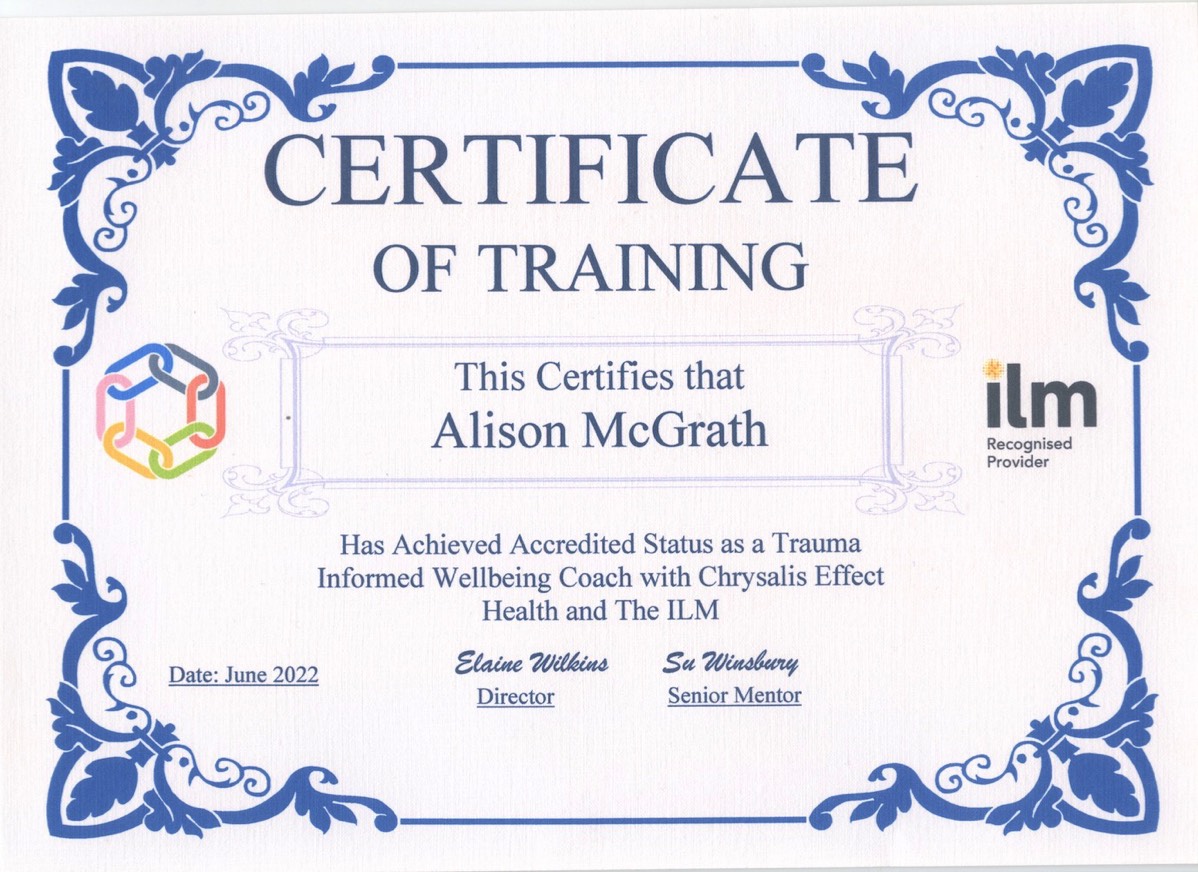
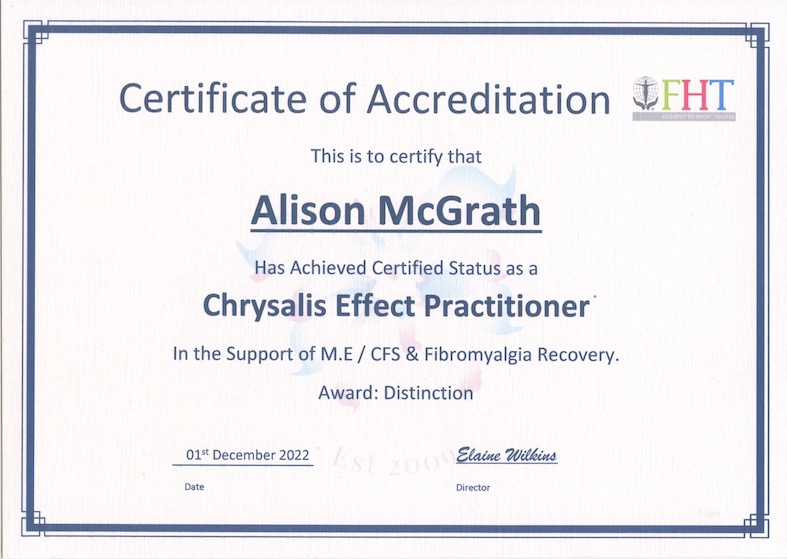
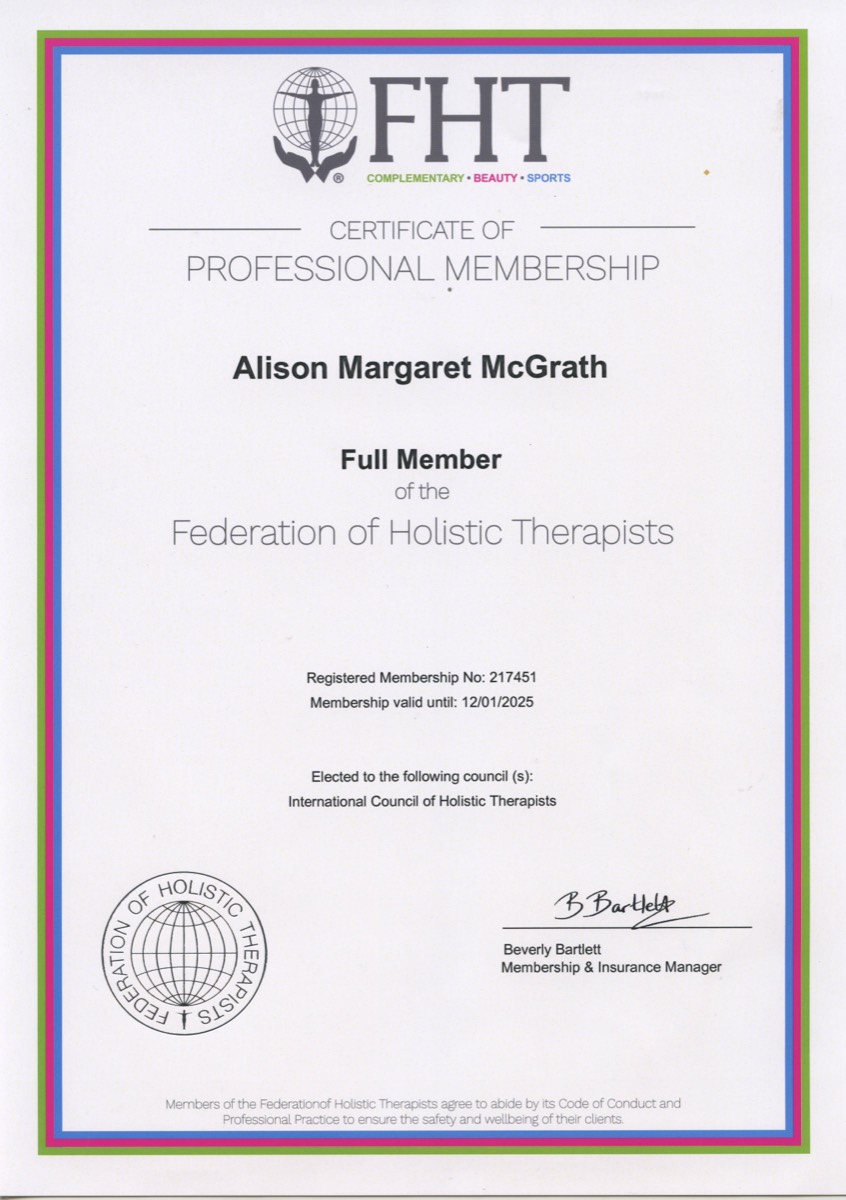
Personal and professional experience
- On leaving school, I joined the army as a student nurse in the QARANC, and served in West Germany. This was not a happy time and I went through an intense period of bullying before leaving.
- I studied for a BSc (Hons) Nursing at the University of Edinburgh, and worked as a staff nurse in Edinburgh's hospitals and in the community. I developed a particular interest in carer support during this time, and met my first clients with chronic exhaustive conditions. At the time there was little I could do but listen and learn from them, and support them in finding help.
- After leaving nursing, I combined motherhood with study for a Masters by Research and then a PhD through the School of Health in Social Sciences in Edinburgh (see below). My academic career was stymied by a combination of pursuing a field for which there was little or no available funding (‘Nursing research is about patient care, not nurses’ wellbeing’) and the economic imperative to move overseas, when my husband was offered work in South Africa.
- After completing my PhD overseas, I returned to my home village, where I raised two children for the next 11 years, while supporting my elderly parents and getting heavily involved in my local community and parish council. I also volunteered as a user on my local Maternity Services Liaison Committee, in response to experiencing a traumatic birth with my first child and a home birth with my second.
- Once the children were at school, I worked for six years for the national charity Garden Organic, managing a volunteer project, teaching people and community groups to grow their own food. (See below).
- My health crashed in 2017, after a major bereavement, and I found the Chrysalis Effect in 2018.
- During my recovery, I established a website to support Tired Gardeners (see below).
- During my recovery, I also developed an interest in family dynamics, Adverse Childhood Experiences (ACEs), and the long-term impact of grief and loss in early childhood.
Healing through growing
I have always been a passionate gardener, and the impact of fibromyalgia and chronic fatigue on my ability to get outside and tend my garden was devastating.
However, before the big health crash that forced me to give up my work, I was a volunteer manager with the charity Garden Organic. I ran a volunteer programme through which we taught people who wanted to learn to grow their own food. As a public health funded programme, this involved a lot of work with individuals and communities living with a variety of chronic illnesses and health challenges, physical, psychological and social. I worked closely with some wonderful horticultural therapists and witnessed the power of actively engaging with nature and growing to heal and bring people together.
I brought this experience into my own recovery, and wrote about it on a website as The Tired Gardener.
However, before the big health crash that forced me to give up my work, I was a volunteer manager with the charity Garden Organic. I ran a volunteer programme through which we taught people who wanted to learn to grow their own food. As a public health funded programme, this involved a lot of work with individuals and communities living with a variety of chronic illnesses and health challenges, physical, psychological and social. I worked closely with some wonderful horticultural therapists and witnessed the power of actively engaging with nature and growing to heal and bring people together.
I brought this experience into my own recovery, and wrote about it on a website as The Tired Gardener.
A personal understanding of nurses' chronic exhaustion
Watch my presentation for The Chrysalis Effect 2023 Conference here on my YouTube channel.
The Exhausted Nurse: Why nurses are at high risk of chronic exhaustive conditions
The Exhausted Nurse: Why nurses are at high risk of chronic exhaustive conditions
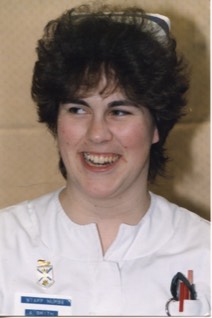
After deciding to leave the nursing profession in 1999, I studied for a PhD, to place my own experiences leading up to that choice in the wider context of my peers.
You can download my thesis, Should I Stay or Should I Go? Towards an Understanding of Leaving Nursing at this link.
At the time, there were many headlines about nurses 'quitting' the profession, with suggestions that this demonstrated a decline in nurses' commitment. This was the opposite of what I saw, experienced, and heard as a nurse, both in hospitals and in the community. I left when the enormous physical and mental toll that nursing was taking on me and my family became unsustainable. I realised that no matter how hard I worked, I would never be able to change a situation that was dangerous to my clients as well as myself. It was one of the hardest decisions I have ever made and took years to reach.
This thesis is based on a series of in-depth interviews with both practising and ex-nurses, which illustrates and explains both the depth and complexity of nurses' commitment to their work, and how that commitment is often a key factor in their decision to leave a role that they love but feel unable to fulfil safely.
In the context of both the current experience of nurses (and other health professionals), and of the work I now do with people who are overwhelmed and exhausted, these 20 year old findings still have a powerful resonance. The importance of setting boundaries, and the way in which nursing's professional culture discourages this fundamental aspect of self-care for its members, is key to understanding why nurses are such an over-represented group in the area of chronic exhaustive conditions today.
The methodology chapter may be heavy going at times, but one of the skills I learned as a nurse was to communicate complex ideas clearly, so I hope you will find it accessible and interesting.
You can download my thesis, Should I Stay or Should I Go? Towards an Understanding of Leaving Nursing at this link.
At the time, there were many headlines about nurses 'quitting' the profession, with suggestions that this demonstrated a decline in nurses' commitment. This was the opposite of what I saw, experienced, and heard as a nurse, both in hospitals and in the community. I left when the enormous physical and mental toll that nursing was taking on me and my family became unsustainable. I realised that no matter how hard I worked, I would never be able to change a situation that was dangerous to my clients as well as myself. It was one of the hardest decisions I have ever made and took years to reach.
This thesis is based on a series of in-depth interviews with both practising and ex-nurses, which illustrates and explains both the depth and complexity of nurses' commitment to their work, and how that commitment is often a key factor in their decision to leave a role that they love but feel unable to fulfil safely.
In the context of both the current experience of nurses (and other health professionals), and of the work I now do with people who are overwhelmed and exhausted, these 20 year old findings still have a powerful resonance. The importance of setting boundaries, and the way in which nursing's professional culture discourages this fundamental aspect of self-care for its members, is key to understanding why nurses are such an over-represented group in the area of chronic exhaustive conditions today.
The methodology chapter may be heavy going at times, but one of the skills I learned as a nurse was to communicate complex ideas clearly, so I hope you will find it accessible and interesting.
Professional memberships and support
As a coach and specialist recovery practitioner, I have a duty of care to my clients and to myself. This means setting, and abiding by, clear boundaries.
As a member of the Federation of Holistic Therapists, I am bound to a code of ethics that guides my practice. As a specialist practitioner with The Chrysalis Effect I also work with in that organisation's Code. I am happy to supply these documents on request.
As a coach, I work with people who have lived through, or are currently experiencing extremely difficult situations. Some of these overlap with my own life experiences. It is therefore essential that I am well supported, and so I receive regular supervision. During these sessions client confidentiality is maintained, but I have the opportunity to seek advice and support around challenging situations I encounter. In this I am following good professional practice and fulfilling my obligations within my codes of practice.
I also participate in regular continuous professional development (CPD) sessions with the Chrysalis Effect, as well as continuing to study privately. While this fulfils my obligations as a FHT and TCE member, it is also part of my lifelong fascination with learning about people and how we work (or don't!)
Insurance
Click on the logo below to view my business insurance certificate with Westminster Insurance.
